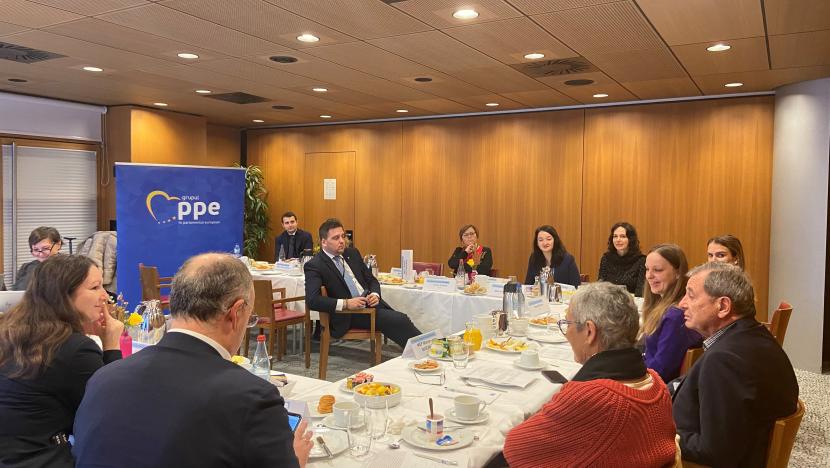Members of the European Parliament (MEPs) joined IRU in Strasbourg to discuss the most contentious points of the proposed Platform Workers Directive – new EU legislation aiming to reclassify platform workers as employees.
Hosted by MEP Marian Jean Marinescu, coordinator of the EPP political group in the Transport Committee of the European Parliament, IRU’s breakfast discussion focused on two main aspects of the Platform Workers Directive:
- limiting its scope to true digital labour platforms, as the proposal had originally intended, and
- setting clear criteria to reclassify a self-employed collaborator of a platform as a platform employee.
The debate gathered MEPs from the Parliament’s two committees on employment (EMPL) and transport (TRAN). UPS and French association UNIT Taxi presented the practical implications of a badly drafted directive on goods transport businesses (parcel delivery) and traditional taxi dispatch centres. The European Transport Workers' Federation also joined the discussion.
The debate came at a critical moment, shortly before the European Parliament’s Employment Committee (EMPL) votes on the file.

